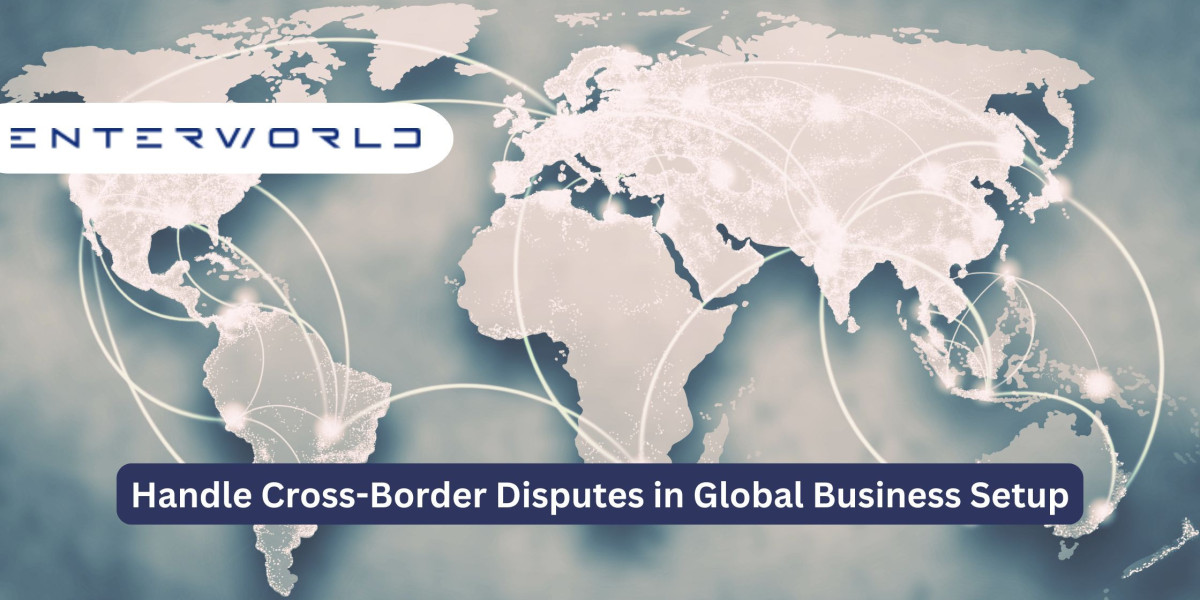Expanding your business internationally through a global business setup comes with its unique opportunities and challenges. One of the most complex aspects of running a global business is handling cross-border disputes. These disputes can arise due to differences in legal systems, business practices, or cultural misunderstandings. Effectively managing these issues is crucial to maintaining smooth operations and protecting your company's interests.
In this article, we will explore how to handle cross-border disputes, focusing on the strategies, legal considerations, and practical solutions that can help you navigate the complexities of international business conflicts.
Why Cross-Border Disputes Occur
Cross-border disputes typically arise in the context of international business when parties from different countries disagree on issues such as contracts, intellectual property, regulatory compliance, or business transactions. The main reasons these disputes occur include:
Different Legal Systems : Each country has its own laws, regulations, and business practices. When a global business setup involves multiple jurisdictions, it becomes difficult to navigate the varying legal landscapes, leading to misunderstandings or breaches.
Cultural and Language Differences : Cultural expectations and language barriers can lead to miscommunications, resulting in disputes over agreements or business conduct.
Differences in Business Practices: Business practices that are common and accepted in one country may not be the same in another. These differences can lead to conflicts regarding how transactions should be conducted or how agreements are interpreted.
Regulatory Conflicts: When a company operates in multiple countries, it must comply with the regulations of each. Inconsistent or contradictory regulations can lead to disagreements over compliance or enforcement.
Key Strategies for Handling Cross-Border Disputes
Prevention Through Clear Contracts
The best way to handle cross-border disputes is to prevent them before they arise. This begins with drafting clear, well-defined contracts that outline the rights, obligations, and expectations of all parties involved. Contracts should include:- Jurisdiction Clause: Clearly specify which country's legal system will govern the contract in case of a dispute. This helps avoid confusion about where legal proceedings should take place.
- Dispute Resolution Clause: Include provisions for resolving disputes, such as requiring arbitration or mediation before resorting to litigation. These methods can save time and reduce costs compared to lengthy court proceedings.
- Choice of Law Clause: State which country’s laws will apply in the event of a dispute, providing certainty about how issues will be addressed.
Understand Local Laws and Regulations
When engaging in global business setup, it’s crucial to understand the legal and regulatory framework in each country where you operate. Consulting local legal experts or hiring international law firms can help you navigate the complexities of foreign laws. This can also ensure that your contracts comply with the specific legal requirements of each jurisdiction, reducing the likelihood of disputes.Effective Communication and Negotiation
Cross-border disputes often stem from miscommunication or cultural differences. Maintaining open lines of communication with your international partners can help clarify misunderstandings before they escalate. It’s also essential to develop strong negotiation skills, as negotiations in different cultural contexts may require more flexibility and patience.Utilize Alternative Dispute Resolution (ADR)
Instead of relying on expensive and time-consuming litigation, many businesses involved in global business setup opt for Alternative Dispute Resolution (ADR) methods such as arbitration or mediation. These methods offer several benefits:- Arbitration: In arbitration, a neutral third party reviews the dispute and makes a binding decision. This can be faster and more cost-effective than going to court.
- Mediation : A mediator helps both parties reach a mutually agreeable solution without imposing a decision. Mediation is less formal than arbitration and can preserve business relationships.
Insurance for International Operations
Another way to manage cross-border disputes is through the use of insurance products designed to protect against international risks. These may include political risk insurance, which covers losses due to government actions, or business interruption insurance that protects against disputes affecting your supply chain or operations.Leverage International Trade Agreements
Countries often have bilateral or multilateral trade agreements that set out rules for resolving disputes between businesses in different countries. Familiarize yourself with these agreements, as they may provide a framework for resolving disputes more easily and with less cost than independent litigation.
The Role of Mediation and Arbitration
Mediation and arbitration are two highly effective methods of resolving cross-border disputes without resorting to litigation. Both have their advantages:
Mediation : This is a voluntary process where a neutral mediator helps the parties negotiate a solution. The mediator does not make a binding decision but facilitates communication to help the parties reach a mutually acceptable resolution. This method is often quicker, cheaper, and more flexible than litigation.
Arbitration : In arbitration, the parties agree to submit their dispute to an arbitrator or panel of arbitrators, who issue a binding decision. Arbitration is typically faster and more flexible than traditional litigation and can be conducted in a neutral location, avoiding the complexity of multiple legal jurisdictions.
These options are particularly beneficial in global business setup because they allow companies to resolve disputes without being subject to the laws of one specific country.
Best Practices for Managing Cross-Border Disputes
Document Everything : In international business, it's important to keep thorough records of all communications, transactions, and agreements. Well-documented evidence can support your case in dispute resolution and help avoid misunderstandings.
Foster Strong Relationships : Building strong, long-term relationships with your international partners can help minimize the chances of disputes arising. Trust and understanding go a long way in preventing conflicts and facilitating smooth resolutions when problems do occur.
Stay Informed : Keep up-to-date with international laws, regulations, and business practices. Regularly review your contracts and business operations to ensure they align with changing regulations.
Conclusion
Handling cross-border disputes is an inevitable part of establishing and maintaining a global business setup . By taking proactive steps such as drafting clear contracts, understanding local regulations, and utilizing Alternative Dispute Resolution methods, businesses can navigate international challenges more effectively. Investing in legal resources and building strong relationships with partners worldwide can help resolve disputes smoothly and ensure continued success in global markets.








